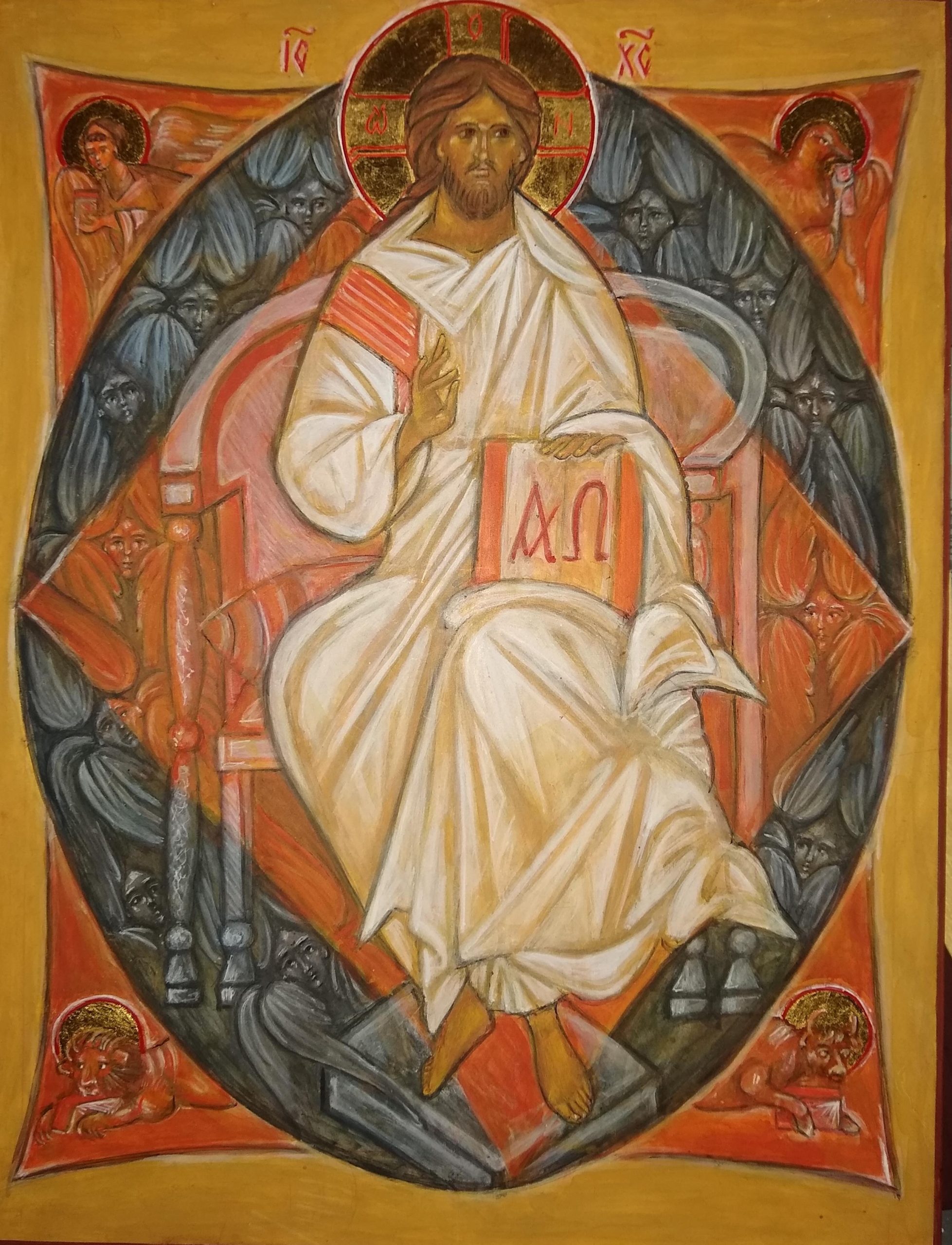Chapter Talk – Christ the King – November 24, 2019, cycle-C
What is the importance of ‘thanksgiving’ on the spiritual journey? We can as well frame the question this way: what is the importance of ‘thanksgiving’ for the blossoming of our humanity? In other words, does the offering of ‘thanksgiving’ have anything to do with our becoming fully alive and free?
Fr. Ronald Rolheiser wrote: “Gratitude is more important even than love because anything which does not take its root in gratitude will be self-serving and manipulative in some way. Only when we give of ourselves to others because we are grateful for how we have been blessed—only then will our love flow out as pure and as not demanding something in return. When we are not acting out of gratitude, we may be well-intentioned and outwardly generous in our actions, but we will not be truly acting in love” (Give Us This Day, November 2019, p.298-299). What Fr. Rolheiser is saying is that what frees and purifies love, and what makes our love truly unconditional is gratitude. Gratitude shifts an inner dynamic: it moves us out of the center and ensures God has the central place in our hearts.
We hear in the psalm 49(50) that a ‘sacrifice of thanksgiving honors me’. To offer thanks is a sacrifice. Why the word ‘sacrifice’? Sacrifice can mean to give up something, to surrender or renounce. No matter what is pre-occupying us: be it a ‘mood’, busyness, and so on, we can pause, make the prayerful movement of ‘sacrifice’ and thank God for the life flowing through my body, for being created in the image and likeness of His Divine being, for the life all around me in my sisters and in nature. Bernard of Clairvaux said: “Let us show that we are not ungrateful, not only in word or in speech, but in deed and in truth, for it is not saying thanks, but giving thanks which the Lord our God requires of us” (In the School of Love, p.102). What Bernard is saying is that in ‘giving thanks’ we are offering a sacrifice of thanks; our thanksgiving has gone deep enough so that there is an inner change: we have returned through gratitude to the Source of our Life. Bernard calls ingratitude “a most wicked vice” (p.102). I would phrase it this way: with ingratitude, the ‘ego’ is ruling our hearts and we are at the very center, not God, of what we are living in any moment of time. Gratitude for graces received, Bernard tells us, makes room “to receive even greater graces than in the past” (p.101). With the offering of thanks, something builds in us over time, and we become ever-more conscious of the gift of God…this brings within us a sense of well-being, along with an inner feeling of being so beautifully alive…no matter our age, no matter our struggles.
Love, genuine love, is liberated through gratitude. Does forgiveness have any place in the offering of ‘thanksgiving’? We know love and forgiveness go together; it is God’s immense love that forgives and transforms us, and this source of forgiving love is a living well that never dries up. When we experience ‘forgiveness’, we sense an inner shift, we sense God’s love, and we are grateful for the ever-so silent change within, and the love that softens the heart, that softens our whole demeanor. This idea that there is a correlation between forgiveness and gratitude came to me from a recent article in Spiritus, titled “Love and Forgiveness: A Christian Theological Point of View” (Fall 2019, vol. 19, p.232-249). The author was not speaking of ‘gratitude’ per se but this is what she wrote at the beginning of her essay: “We were created to be gifts, not merely for the commercial relationships that a consumer society imposes on us. Forgiveness underlines and emphasizes that this is inherent to our identity. Forgive—for giving—means to continue giving, to insist on giving. Even after an offense or an act of aggression, to ensure that there is not a break in the relationship. The relationship will endure because one of the individuals insists, persists, for-gives” (p.232). ‘We were created to be gifts…’: this gift that we each are is what evokes our gratitude and the process of forgiveness returns us to this inner ‘knowing’. To for-give…to continue giving out of the gift God has given each one of us.
Each day of our lives invites us to thank God for his gift to us. Gratitude opens us to love without counting the cost. And then, can we see forgiveness as another opportunity to offer thanks…for God’s love forgives…and forgiveness reminds us that ‘we were created to be gifts’.
Sr. Kathy DeVico, Abbess


